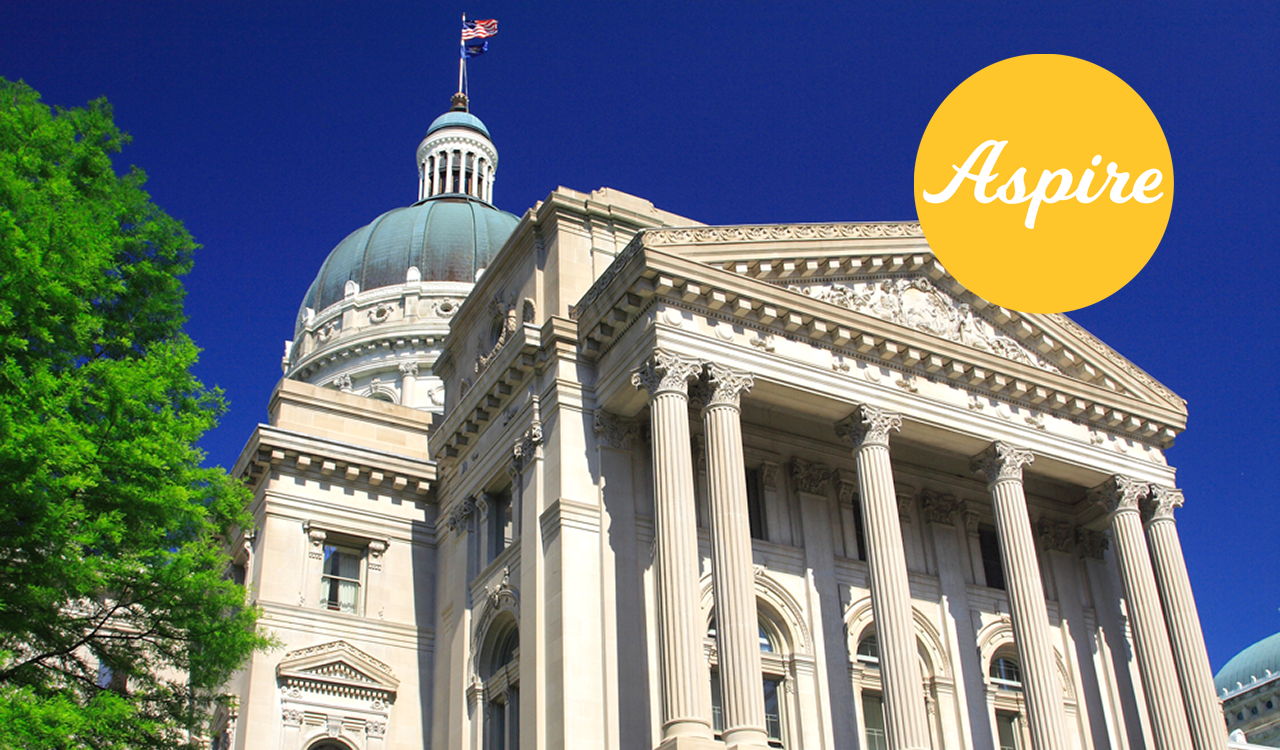Statehouse Update: 2022 Session Adjourns with Final Tax Deal

The 2022 Indiana General Assembly session ended sine die (Latin for without another day) shortly after midnight early Wednesday last week. The House adjourned at 12:17 a.m. and the Senate at 12:41 a.m. As we reported last week, the fate of Aspire’s top priorities was mostly known by last Tuesday. But the final details of major tax and financial matters were not hashed out until the very end.
2022 was the textbook example of how short sessions can be just as consequential as longer, budget-drafting years. We are stunned by the number of bills adopted outside the regular budget process that change tax law. This final weekly 2022 Statehouse session report will focus on all things fiscal.
Business Tax Cuts
As legislators went into what was their final weekend before the close of the session, a major deal on HB 1002 tax breaks was not yet struck. Governor Holcomb and the House were still pushing for a cut to the corporate income tax and the business personal property tax. The Senate was pumping the brakes to make sense of cutting long-term revenue due to short-term windfalls. Ultimately, they settled on language reducing the individual income tax rate from 3.23% to 2.9%, phased in over a period of seven years. The bill also eliminates the utility receipts tax, which will mostly benefit businesses. But legislators did not agree to eliminate the minimum business personal property tax companies pay for new equipment. This proposal faced strong opposition from local governments concerned about the loss of local revenue. We shared in this concern knowing these funds play a critical in community development and placemaking.
Automatic Tax Refund
SB 1 provides a tax refund to Hoosiers by expanding eligibility to citizens who did not make enough income to be required to file a tax return. Originally created as a response to the surplus from the state’s revenue in 2021, it is estimated that over 400,000 taxpayers will receive some sort of tax credit and/or refund (amount is dependent on how they filed in 2021) – as a base return of $125. Governor Holcomb signed this bill into law on March 7th.
Affordable Housing Development Tax Credit
We are excited this tax credit made it across the finish line! The original language from SB 262 was amended into SB 382, an Indiana Department of Revenue bill addressing various tax matters. The bill was passed and sent to the Governor’s desk. Hoosiers need more quality housing options. This tool can help make it more affordable for developers to build homes at affordable rates for homebuyers priced out of the market.
New Tools to Attract Company Investment to Indiana
Indiana competes well against other states for company investment and expansion. SB 361 now gives the State new tools to win jobs and investment. The bill is best known for its Innovation Development Districts (IDDs) to help Indiana win large-scale attraction opportunities. These districts will capture the incremental growth of state and local taxes for physical, financial, and programmatic investments tailored to major economic projects (think new microchip factory). After much discussion between State and local community leaders, the bill designates a local IDD fund to capture the property tax increment for use only in the designated district. The final bill also maintained the previously settled 12% pass-through to surrounding units.
The final bill lays out clear requirements for the IEDC when dealing with local governments. It removed the local IDD board and instead requires the Indiana Economic Development Corporation to collaborate directly with local elected leaders. For example, if the company investment in an innovation district is calculated to be less than $2 billion, the IEDC must get consent from either the local mayor or county commissioners to move ahead with the project. If the investment is worth more than $2 billion, the IEDC could establish a district without a formal agreement from local officials, but the language states that they should continue to collaborate with them.
SB 361 creates other new tools to help Indiana compete:
- Creates new film production incentives and adjusts the terms of existing tax breaks.
- Supports local communities seeking to offer worker relocation incentives by allowing local governments to create remote worker relocation programs (funded by local dollars).
- Invests a $300 million direct appropriation to a flexible business promotion and innovation fund in the next budget cycle.
Please be on the lookout in the next couple of weeks for Aspire’s official 2022 Statehouse session report. Similar to our 2021 session report, it will include a recap of priority issues and how our delegation voted. It will also highlight other major legislative issues from this session that we did not track closely but made headlines.
While we are ready to say goodbye to the 2022 legislative session, some are not – 100 Republicans signed a letter last Tuesday asking the Governor to call them back into a special session should the U.S. Supreme Court roll back the limits states may place on abortion services. So instead of saying goodbye, perhaps it is more prudent to say, “see you soon.”
The General Assembly has already scheduled Technical Corrections Day for May 24 – a day to edit or amend legislation to correct drafting errors, misspellings, duplicate laws, and major conflicts with existing laws. The General Assembly can also vote to override a gubernatorial veto. But if we learned anything from the House’s irregular fall 2021 start to its 2022 legislation, we plan to be ready for new legislation to be introduced this summer.
Thank you for following along with us!
